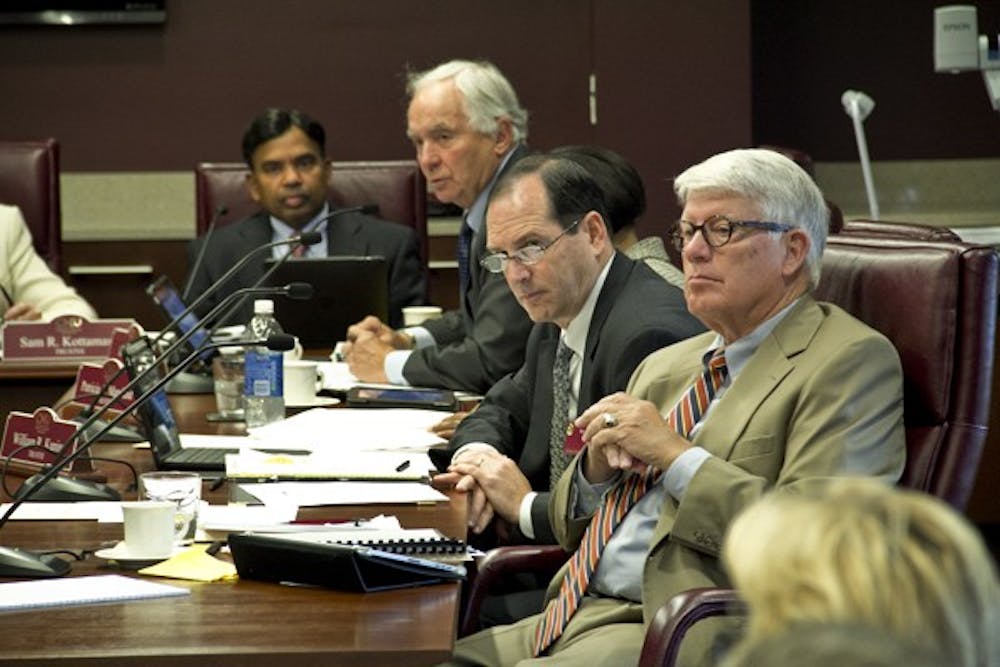Legislation may initiate discussion of centralized university governing board

A bill introduced last September that could create discussion about a centralized governing board over public universities still awaits a hearing from the Michigan Government Operations Committee.
House Bill 5000, proposed by State Rep. Bob Genetski, would create an 11-member commission to evaluate the current state of public university governance. The proposed legislation would affect the 13 government-funded universities throughout Michigan, including Central Michigan University.
Genetski, R-Saugatuck, said the bill is not designed to promote a centralized governing board, but rather observe and report on the universities' current governments.
"House Bill 5000 merely initiates a discussion and forms a commission to take a look at the governance system," Genetski said. "It doesn’t necessarily advocate for or against a centralized government system."
The commission would be limited to providing recommendations after evaluating the universities, and will not be given the power to determine the future of university governance.
Genetski said after the drastic hikes in tuition at Michigan's public universities over recent years, examining university governance could help. However, Genetski said the legislation is not designed to promote any particular government system for the universities.
"I don’t know if one centralized board or government for all public universities is a good idea," Genetski said. "But I think we have to take a look at it."
Kathy Wilbur, CMU's Vice President of Development and External Relations, said Genetski has an appropriate concern about tuition levels for Michigan universities.
"I think (Rep. Genetski) wanted to be able to look at that and explore if boards are engaged to make decisions about tuition as people hope. I know the CMU board is extremely engaged with the process of consideration and debate when it comes to tuition decisions," Wilbur said. "I do think that there is an interest on his part in considering how other states are organized in higher education."
Wilbur said even if a committee was assembled to report on the current state of Michigan's public universities, a significant amount of legislation would still be needed to make any changes to university governance.
"It would no doubt take a state constitutional amendment to bring about a change in the governance of the state’s higher education," she said.
A centralized board for all 13 of Michigan's public institutions is nothing new to the rest of the country. According to a recent Detroit Free Press report, about half the states have a central board that at least shares power with individual university trustee or regents. Most central boards approve major decisions.



